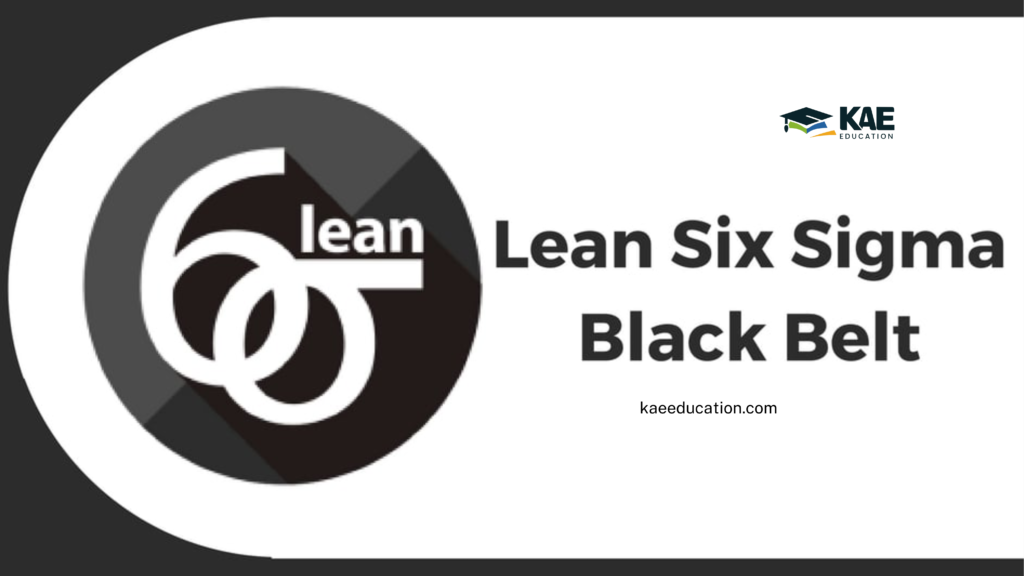Lean Six Sigma Black Belt: Is It the Key to Business Excellence in 2025?
Introduction
In today’s dynamic Business environment, achieving operational excellence is a top priority for organizations across the globe. The Lean Six Sigma Black Belt certification is a highly sought-after credential for professionals aiming to lead transformative projects and drive Business success. As we approach 2025, the relevance of the Lean Strategy Advisor continues to grow, offering professionals a pathway to elevate their careers and organizations a means to optimize processes and deliver value.
What is Lean Six Sigma Black Belt?
The Lean Six Sigma Black Belt is an advanced certification focused on equipping individuals with the tools and leadership skills to manage large-scale improvement projects. It integrates Lean principles and Six Sigma methodologies to:
(1) Enhance efficiency and eliminate waste.
(2) Solve complex problems through data-driven decisions.
(3) Lead cross-functional teams in achieving measurable results.
Key Features of Lean Strategy Advisor:
(1) In-depth training in statistical analysis and process improvement.
(2) Advanced familiarity with the DMAIC framework (Define, Measure, Analyze, Improve, Control).
(3) Emphasis on leadership and strategic thinking.
Why Black Belt Certification Matters in 2025
(1) Future Demand Drivers:
(1) Increased Complexity in Business Operations: Companies need skilled leaders who can address multifaceted challenges.
(2) Global Focus on Efficiency: Organizations are prioritizing cost reduction and resource optimization to remain competitive.

(3) Technological Advancements: With AI and automation reshaping Industries, Lean Strategy Advisor professionals play a crucial role in integrating these tools effectively.
(4) Sustainability Goals: Lean Strategy Advisor are instrumental in aligning Business processes with environmental and social sustainability objectives.
(2) Growth Projections:
(1) The demand for Lean Six Sigma Black Belt-certified professionals is expected to grow by over 8% annually through 2024-2025, driven by Industries like Healthcare, IT, Manufacturing, and logistics.
(2) Organizations are increasingly relying on Lean Strategy Advisor leaders to execute high-impact projects that align with strategic goals.
Advantages of Earning a Black Belt Certification
(1) Leadership Opportunities: Positions you as a strategic leader in your organization.
(2) Higher Earning Potential: Lean Strategy Advisor professionals often earn significantly more than their non-certified counterparts.
(3) Global Recognition: A universally respected certification that opens doors to International roles.
(4) Organizational Impact: Drive substantial improvements in cost, quality, and efficiency.
How to Stay Relevant with a Black Belt Certification
(1) Continuous Learning: Keep up with the latest trends in Lean Six Sigma and related fields.
(2) Lead High-Impact Projects: Apply your skills in real-world scenarios to showcase your value.
(3) Network with Experts: Join professional communities and forums to exchange knowledge.
(4) Upskill in Technology: Familiarize yourself with tools like Data analytics, AI, and process automation.
Conclusion
As we move into 2025, the Lean Six Sigma Black Belt certification stands out as a key to unlocking Business excellence. Its combination of advanced problem-solving techniques, strategic leadership, and global recognition makes it indispensable for professionals and organizations striving for success. By earning a Lean Strategy Advisor, you position yourself as a transformative leader capable of driving growth and efficiency in an ever-evolving landscape. Start your journey today and secure your role in shaping the future of Business excellence!
FAQs About Lean Six Sigma Black Belt
It is an advanced professional certification that trains individuals to lead complex improvement projects and drive Business excellence.
Managers, team leaders, and professionals aspiring to lead strategic initiatives and improve organizational performance.
It typically requires 3-6 months of training, project completion, and passing a comprehensive exam.
Absolutely. As Businesses face increasing challenges, the demand for skilled Black Belt professionals continues to rise.
Industries like Manufacturing, Healthcare, IT, Finance, and supply chain management highly value Black Belt-certified leaders.
Black Belts lead large, complex projects, while Green Belts support or manage smaller-scale initiatives.
Roles like process improvement manager, quality assurance director, and operations leader are common for Black Belt-certified professionals.

